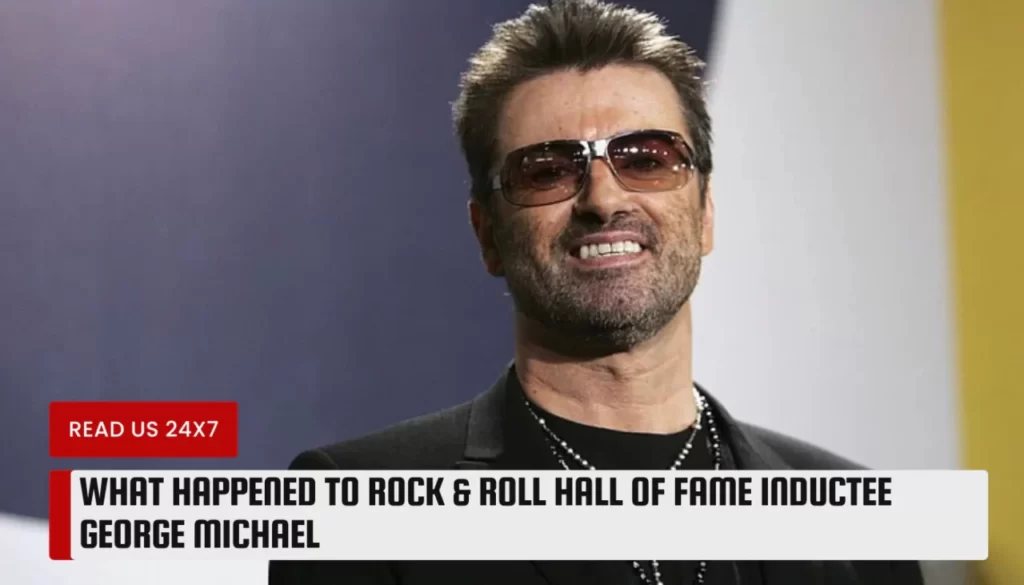George Michael, one of the most successful and influential pop stars of the 1980s and 1990s, died on December 25, 2016, at the age of 53. He was found dead in his home in Goring-on-Thames, Oxfordshire, by his partner Fadi Fawaz. The cause of death was later confirmed to be dilated cardiomyopathy with myocarditis and fatty liver, a condition that affects the heart muscle and its ability to pump blood. His death shocked and saddened millions of fans around the world, who remembered him for his iconic songs, his charismatic persona, and his humanitarian work.
Who was George Michael?
George Michael was born Georgios Kyriacos Panayiotou on June 25, 1963, in East Finchley, London. He was the son of a Greek Cypriot restaurateur and an English dancer. He grew up in a working-class family and developed a passion for music at an early age. He learned to play the piano and guitar and started writing songs when he was 13.
He met his musical partner Andrew Ridgeley at Bushey Meads School and formed the duo Wham! in 1981. They quickly rose to fame with their catchy pop tunes, such as “Wake Me Up Before You Go-Go”, “Careless Whisper”, and “Last Christmas”. They sold over 30 million records worldwide and became one of the biggest acts of the decade. They also broke new ground by performing in China in 1985, the first Western pop group to do so.
Michael embarked on a solo career in 1987, releasing his debut album Faith, which sold over 25 million copies and won the Grammy Award for Album of the Year. He established himself as a mature and versatile artist, exploring different genres and themes in his music. Some of his most popular and acclaimed songs include “Father Figure”, “Freedom! ’90”, “Praying for Time”, “Jesus to a Child”, and “Don’t Let the Sun Go Down on Me”. He collaborated with other artists such as Aretha Franklin, Elton John, Mary J. Blige, and Queen. He sold over 100 million records worldwide and won numerous awards and honors, including two Grammys, three Brit Awards, four MTV Video Music Awards, and six Ivor Novello Awards.
George Michael’s Death
George Michael’s death was unexpected and tragic. He had been suffering from health problems for several years, including pneumonia, depression, and drug addiction. He had also been involved in several legal and personal troubles, such as arrests for drug possession, driving under the influence, and public indecency. He had also faced criticism and controversy for his sexuality, which he revealed publicly in 1998 after being arrested for engaging in a lewd act in a public restroom in Beverly Hills. He later became an outspoken advocate for LGBT rights and HIV/AIDS awareness.
On Christmas Day 2016, Michael was found dead in his bed by his partner Fawaz, who said he had gone to sleep the night before and never woke up. He was pronounced dead at the scene by paramedics. A post-mortem examination was inconclusive, but a coroner’s report later stated that he died of natural causes, specifically dilated cardiomyopathy with myocarditis and fatty liver. Dilated cardiomyopathy is a condition that weakens the heart muscle and reduces its ability to pump blood. Myocarditis is an inflammation of the heart muscle, usually caused by a viral infection. Fatty liver is a buildup of fat in the liver, which can impair its function and lead to complications.
Michael’s death was mourned by his family, friends, colleagues, and fans, who paid tribute to him with flowers, candles, messages, and music outside his homes in London and Oxfordshire. His funeral was held on March 29, 2017, at Highgate Cemetery in London. He was buried next to his mother, Lesley, who had died of cancer in 1997.
Why is George Michael in the Rock & Roll Hall of Fame?
George Michael was inducted into the Rock & Roll Hall of Fame in 2019, three years after his death. He was recognized for his remarkable achievements and contributions to the music industry and culture. He was one of the most successful and influential pop stars of all time, with a distinctive voice, style, and vision. He was also a prolific songwriter, producer, and performer, who created some of the most memorable and enduring songs of the 20th century. He was a pioneer and innovator, who experimented with different genres and sounds, and challenged the norms and expectations of the pop music scene. He was also a humanitarian and activist, who used his fame and fortune to support various causes and charities, especially those related to LGBT rights and HIV/AIDS awareness.
Michael’s influence on music and culture can be seen and heard in many artists and genres, such as pop, soul, R&B, dance, hip hop, and rock. He inspired and collaborated with some of the biggest names in music, such as Madonna, Prince, Michael Jackson, Beyoncé, Adele, and Sam Smith. He also influenced and mentored many young and emerging artists, such as Ed Sheeran, Bruno Mars, Justin Bieber, and Harry Styles. He was admired and respected by his peers and critics, who praised him for his talent, creativity, and courage.
Remembering George Michael
George Michael’s legacy lives on through his music, which continues to touch and inspire millions of people around the world. His songs have been covered, sampled, remixed, and featured in various media, such as films, TV shows, commercials, and video games. His songs have also been used to celebrate and commemorate various events and occasions, such as weddings, birthdays, anniversaries, holidays, and memorials. His songs have also been used to express and promote various messages and values, such as love, freedom, faith, hope, and justice.
Michael’s legacy is also honored and celebrated by various tributes and commemorations, such as documentaries, biographies, books, podcasts, exhibitions, concerts, and awards. Some of the most notable examples include the documentary Freedom, which he co-directed and narrated before his death; the biography Wham! George & Me, written by his former partner Ridgeley; the book Last Christmas, a collection of essays and stories inspired by his song of the same name; the podcast George Ezra & Friends, which features an interview with Michael; the exhibition George Michael: The Legacy Collection, which showcases his personal items and memorabilia; the concert George Michael: A Celebration, which features performances by his friends and collaborators; and the award George Michael Award for Outstanding Contribution to British Music, which was established by the Brit Awards in his honor.
Michael’s legacy also has a lasting impact on the music world, as he continues to be recognized and appreciated for his achievements and contributions. He has been inducted into several halls of fame and lists of honor, such as the UK Music Hall of Fame, the Songwriters Hall of Fame, the Billboard Hot 100 All-Time Top Artists, and the Rolling Stone 100 Greatest Singers of All Time. He has also been awarded and nominated for several prestigious awards and honors, such as the Grammy Lifetime Achievement Award, the Brit Icon Award, the MTV Europe Music Award for Global Icon, and the Rock & Roll Hall of Fame.
Conclusion
George Michael was a pop legend, a musical genius, and a cultural icon, who left behind a rich and remarkable legacy. He died unexpectedly and tragically, but his music and spirit live on. He was a rock and roll hall of famer, who made a lasting impression on the music industry and culture. He was a humanitarian and activist, who made a positive difference in the world. He was a beloved and respected artist, who made millions of people happy and inspired. He was George Michael, and he will always be remembered.








